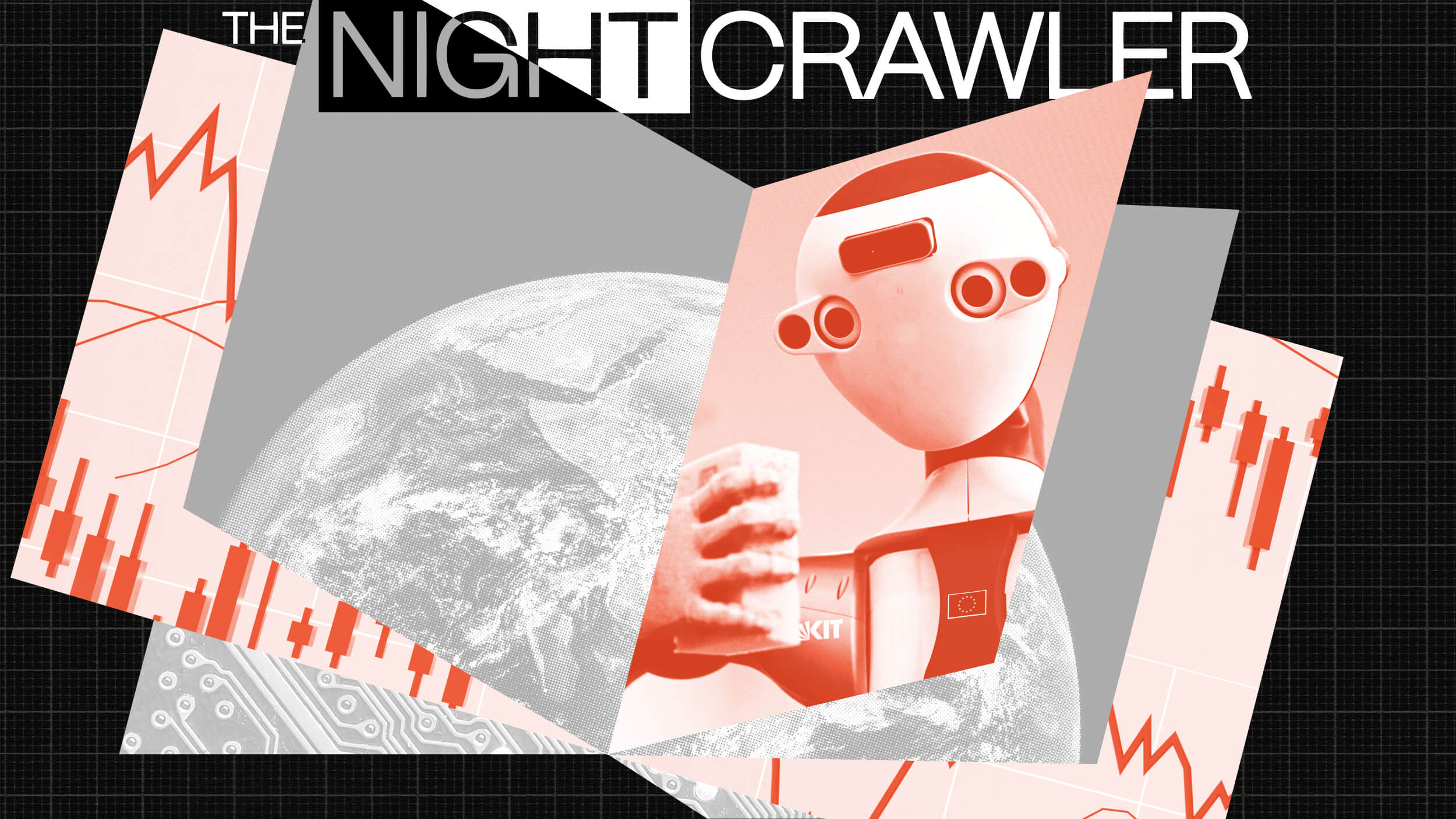How to build something that lasts

Credit: Alpsdake / CC BY-SA 3.0 / Wikimedia Commons
- Main Story: Modern American culture is fixated on the new, fostering a society where short-termism thrives.
- By examining Japanese companies that have lasted for centuries we can uncover timeless principles that enable steady, exponential compounding.
- Also among this week’s stories: Anthropic co-founder Dario Amodei on risk vs. reward with AI, the nature of storytelling, and the “escalator approach” to investing.
Modern American culture is obsessed with the new — instant gratification, fleeting trends, etc. — while often neglecting the systems that can endure. This fixation on the new has fostered a society where short-termism thrives and chaos reigns. But my own brush with mortality forced me to confront a different, more urgent question: how do you survive long enough to unlock the rewards of exponential outcomes?
Race car driver Jimmie Johnson perhaps said it best: “In order to finish first, you first must finish.” (H/T John Candeto) In my latest Big Think column, I examined ancient Japanese businesses that have lasted for centuries. These companies don’t focus on rapid growth or flashy innovations. Instead, they follow timeless principles that enable steady, exponential compounding for those with patience and resilience. As we head into 2025, take this as an invitation to rethink how you’re positioned for the long term.
Key quote: “Japan is home to an extraordinary number of shinise, or long-established businesses. A 2008 study found that Japan had over 21,000 companies older than 100 years, including more than 3,000 that had crossed the 200-year mark. These firms are not just historical artifacts — they are vibrant examples of how to endure and thrive in a rapidly changing world. Their strategies — balancing tradition with adaptability, patience with practicality — are a masterclass in long-term thinking that today’s entrepreneurs and executives would be wise to study.”
The risk vs. reward balance in achieving super-powerful AI
Back in October, Dario Amodei — co-founder of AI firm Anthropic — wrote a fascinating (and long) essay about the future of artificial intelligence. His view —while balanced — is an optimistic one. The essay outlines a vision for how AI could profoundly improve humanity’s future by accelerating progress in fields like health, neuroscience, economics, governance, and human meaning itself.
Recently, Dario was interviewed by Lex Fridman to explore these ideas in further depth. Most interesting to me was how Dario contextualized the risk/reward dynamic of unleashing powerful AI frameworks into the world. To me, the subtext of his comments is astute: that if AI becomes over-regulated or otherwise blocked, we risk throttling some of the profound benefits that AI could unlock for humanity.
“If you only talk about risks, your brain only thinks about risks,” he says. “And so, I think it’s actually very important to understand, what if things do go well? And the whole reason we’re trying to prevent these risks is not because we’re afraid of technology, not because we want to slow it down. It’s because if we can get to the other side of these risks, if we can run the gauntlet successfully — to put it in stark terms — then on the other side of the gauntlet are all these great things.” He continues:
Key quote: “And these things are worth fighting for. And these things can really inspire people… I figured that I thought it would be interesting and valuable for someone who’s actually coming from the risk side to try […] explaining what the benefits are, both because I think it’s something we can all get behind and [because] I want people to understand. I want them to really understand that this isn’t Doomers versus Accelerationists. This is that, if you have a true understanding of where things are going with AI… then you really appreciate the benefits. And you really want humanity or civilization to seize those benefits. But, you also get very serious about anything that could derail them.”
A few more links I enjoyed:
The Most Important Thing – via Lewis Enterprises
Key quote: “Their jobs were to make money, and […] they would say they were focused on that goal to the exclusion of all others, but for most investors (myself included), this is a conceit that must be overcome. Some investors seek validation of their cleverness, others want to be rewarded for their piety to certain investing dogmas, and others crave the prestige and respect that comes from simply being entrusted with capital.”
How to Win at Life Without Trying to Win at Everything | Luca Dellanna and Dylan O’Sullivan – via Matt Zeigler / Cultish Creative
Key quote: “In this episode of Just Press Record, host Matt Zeigler brings together two insightful thinkers who’ve never met before: Dylan O’Sullivan, a literary editor known for his existential musings, and Luca Dellanna, author of Ergodicity and other works on long-term decision-making. Their wide-ranging conversation explores the delicate balance between performance and survival, the nature of storytelling in both fiction and non-fiction, and how to make choices that are ‘not optimal, but compatible’ with both short and long-term wellbeing.”
How Successful Investors Find Winning Ideas – via Latticework | MOI
Key quote: “How do you find great ideas? What is your a process for feeding ideas into your research pipeline? How do you improve and refine the process? Over nearly two decades, MOI Global has queried investment managers on their idea generation strategies. A common theme: investing is part science, part art. Granted, quantitative methods can generate lists of companies for consideration, based on criteria such as P/E, enterprise value to sales, or price to book value. However, massive outperformance has never been synonymous with picking the quantitatively cheapest companies.”
The Escalator Approach to Investing – via Arne Alsin / X
Key quote: “Imagine the stock market as a sprawling mall filled with escalators. Some are heading up, others are heading down, and a few are stuck in place. As investors, our job is to pick the right escalators — those moving steadily upward — and decide when to step on and, more importantly, when to stay on. That last part is key, because the most common mistake investors make isn’t choosing the wrong escalator; it’s stepping off the right one far too soon.”
From the archives:
The Power of the Marginal – via Paul Graham (2008)
Key quote: “The very skill of insiders can be a weakness. Once someone is good at something, they tend to spend all their time doing that. This kind of focus is very valuable, actually. Much of the skill of experts is the ability to ignore false trails. But focus has drawbacks: you don’t learn from other fields, and when a new approach arrives, you may be the last to notice. For outsiders this translates into two ways to win. One is to work on a variety of things. Since you can’t derive as much benefit (yet) from a narrow focus, you may as well cast a wider net and derive what benefit you can from similarities between fields. Just as you can compete with delegation by working on larger vertical slices, you can compete with specialization by working on larger horizontal slices — by both writing and illustrating your book, for example. The second way to compete with focus is to see what focus overlooks. In particular, new things. So if you’re not good at anything yet, consider working on something so new that no one else is either. It won’t have any prestige yet, if no one is good at it, but you’ll have it all to yourself.”




